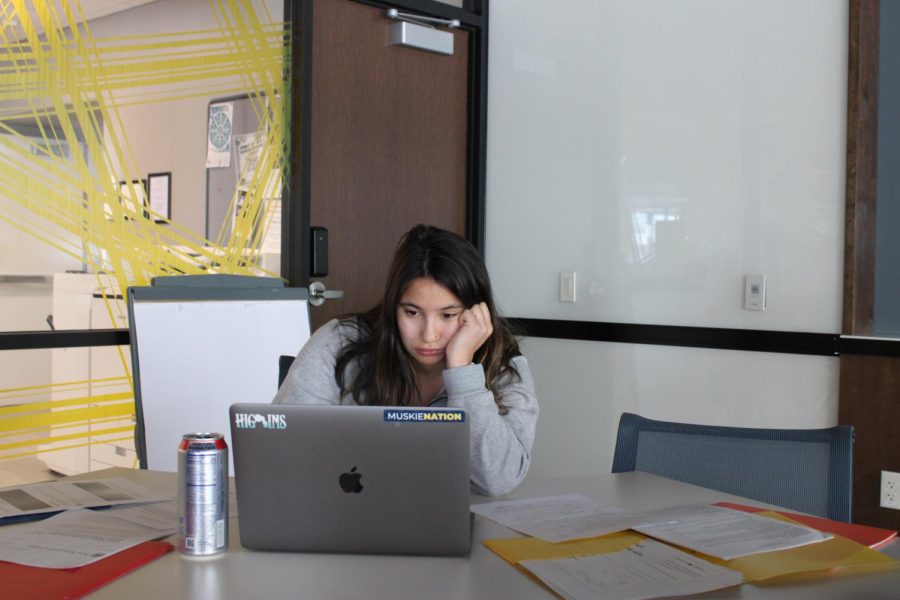“Don’t stress. Do your best and forget the rest,” Tony Horton once said.
March 16, 2022
With midterms already upon us, many students are experiencing extraordinarily high levels of stress and are struggling to cope with the additional pressure.
This can have negative side effects on both physical and mental health. Manifesting itself with increased anxiety or depression, increased heart rate, loss of sleep, loss of appetite and many other negative side effects.
So, what can we do to decrease or prevent stress from overtaking our lives throughout stressful weeks, like midterms?
Dr. Elizabeth Stroot, a respected Clinical Psychologist and professor at Lakeland University, explained that while preventing stress is impossible, there are many helpful steps and interventions we can complete to manage or decrease anticipated stress.
A couple of these methods include a “no procrastination” pledge, exercising, listening to your favorite music, downloading meditation apps or just taking five minutes to “go in search of beauty”. The no procrastination pledge involves setting goals on how to accomplish upcoming assignments and setting aside study times for exams. This requires a decent amount of organization and goal setting. In contrast, other interventions like, the go in search of beauty intervention can take only a few minutes of your time.
Some people choose to focus on enjoying the sunset, while others prefer to seek out moments in NFL games or movies. Stroot explains that while all these interventions are important and influential, the most important thing a student can do is prioritizing good sleep.
An alternative approach, equally important to the interventions mentioned above, is reaching out and asking for help.
Stroot said, “If you find you are not coping well with stress, there is no shame in asking for help. Indeed, it takes insight and courage to reach out. Everyone needs support and a friendly shoulder to lean on, especially in tough times, like year three of the pandemic and midterms!”
Lakeland University offers a variety of services to help students through stressful moments in their lives, not just during midterms. Taking advantage of the counseling services or setting up a time to speak with the chaplain could be incredibly beneficial to students.
To sign up to meet with a counselor or if curious about finding out additional information, please go to lakeland.edu/student-experience/health-and-counseling.
Christine Jenkins, campus counselor here at Lakeland University, has over 25 years of experiencing different situations students might be encountering while going through this journey. She is more than ready to help and even suggests an article for students dealing specifically with exam stress.
If you are interested in learning more about specifically combatting exam stress, please go to https://www.daniel-wong.com/2018/09/10/beat-exam-stress/.


